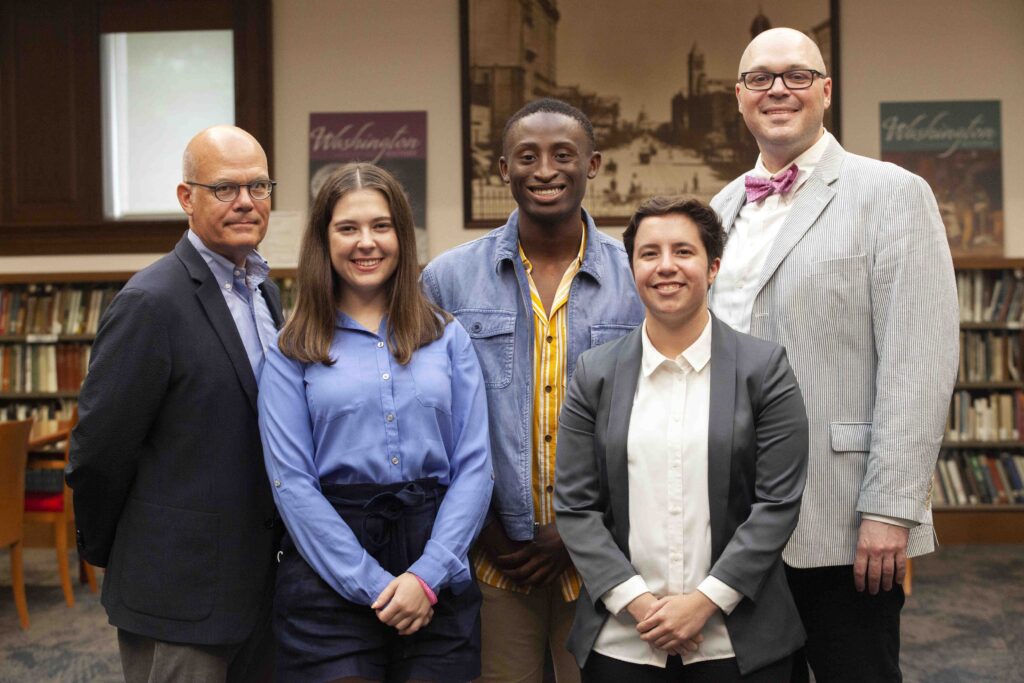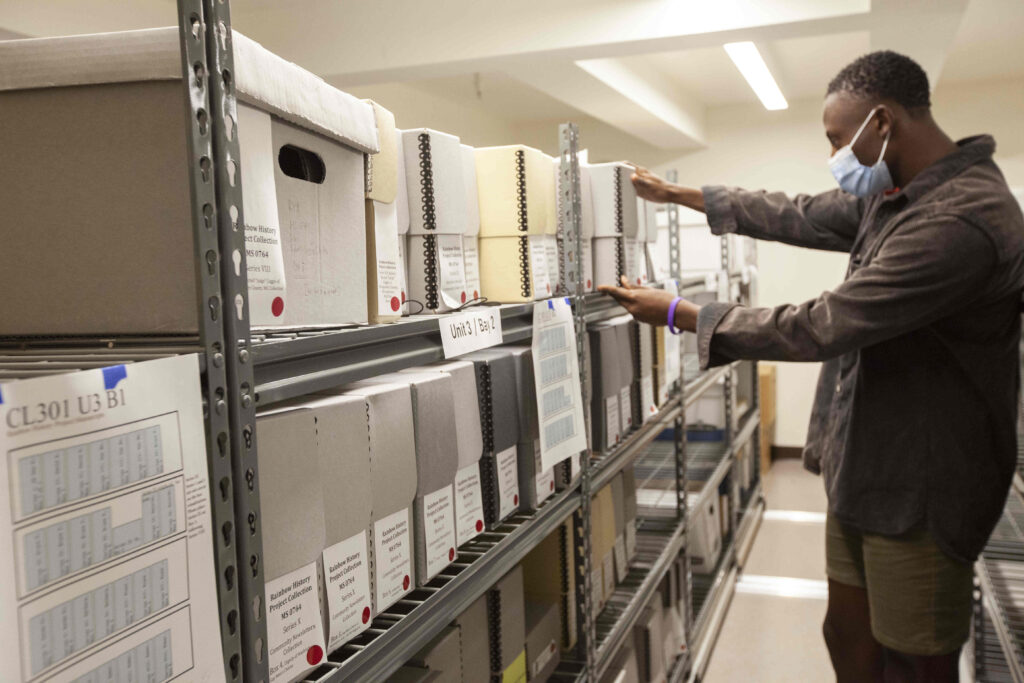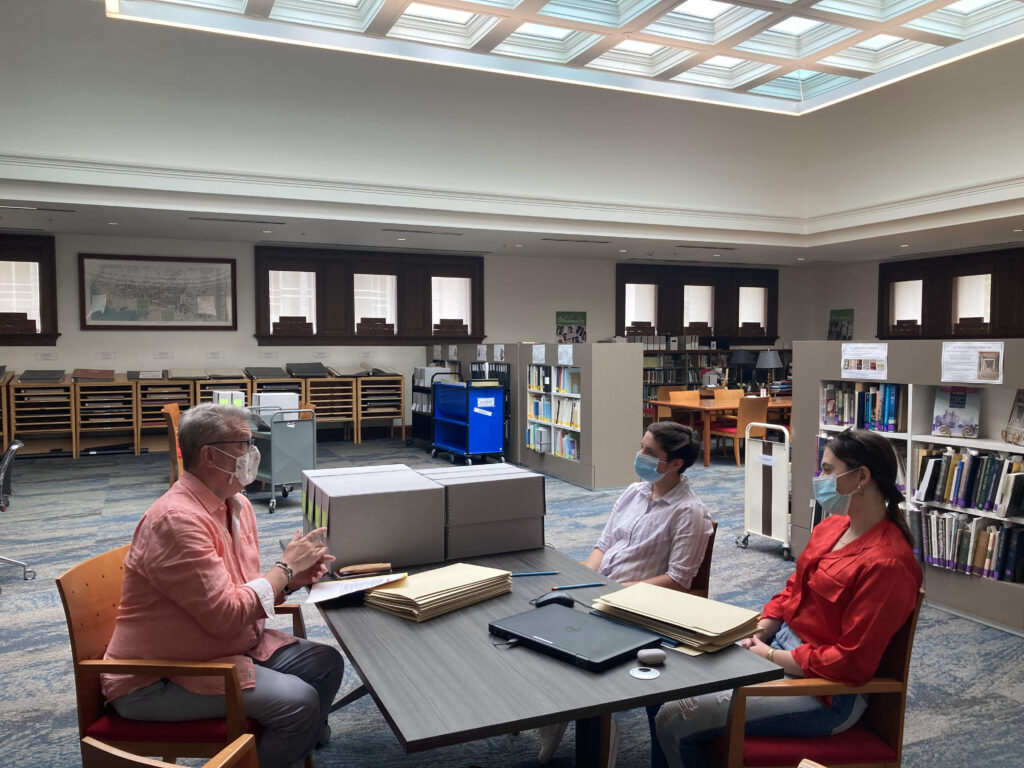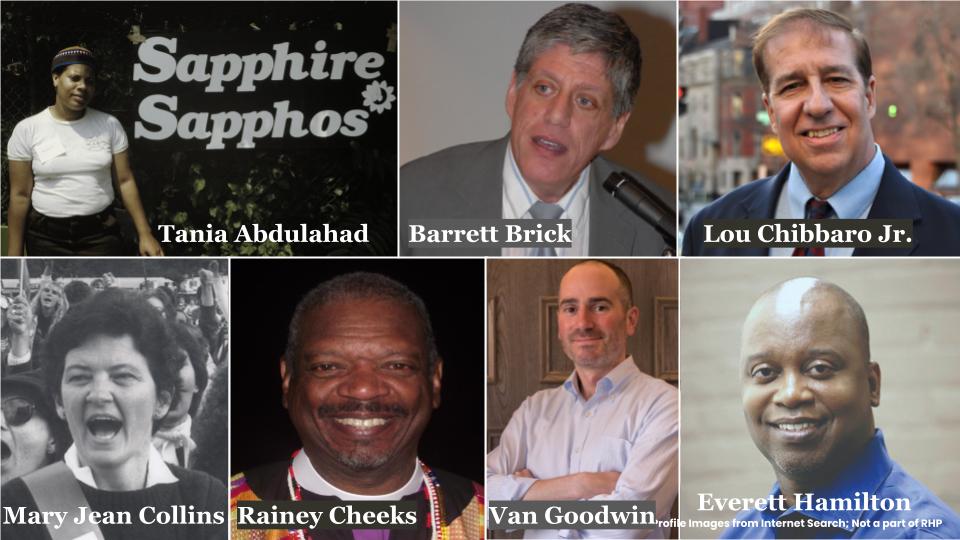
The relationship between the military and its LGBTQ+ members—and those who have been deterred from joining or forced from their ranks—is for many a devastating one. Exclusion and persecution based on sexual orientation dates as far back to the founding of the U.S. services.
There has been progress in recent decades at the Annapolis, MD-based U.S. Naval Academy (USNA), which trains undergraduates to be officers in the U.S. Navy and Marine Corps. In 2003, alumni formed USNA Out, a group led by openly LGBTQ+ graduates. In 2011, the year Don’t Ask Don’t Tell ended, current students launched Spectrum, the Genders and Sexualities Alliance club. But even with visible representation from alumni and current students, it was striking in 2017 that Dr. Marlon Moore, a professor at the U.S. Naval Academy, issued an invitation to speak on campus to the Rainbow History Project (RHP), a nonprofit dedicated to “collect, preserve, and promote an active knowledge of the history, arts, and culture relevant to sexually diverse communities in metropolitan Washington DC.”
RHP’s Director of Archiving Vincent Slatt recognized the impact of the invitation, both for the Rainbow History Project and for the students with whom he interacted. He subsequently built on this speaking opportunity, initially designed by Dr. Moore to introduce advanced English majors to the intersection of LGBTQ studies methods and literary analysis, by connecting RHP’s archival repository partner (us here at the DC History Center) with the USNA.
The three organizations have since worked together to connect students in need of meaningful internships, with collections processing work that needs to be done, all in service of making resources available for researchers to better understand the history of DC’s LGBTQ+ communities.
The tri-party partnership began in 2019, but due to the pandemic, the June 2020 internship was canceled. During the next year’s program, an exclusively virtual experience, Research Services Librarian Kimmi Ramnine and I introduced the interns to archival concepts and theory, including ML Caswell’s piece on empathetic archives. We also shared secondary resources exploring DC’s LGBTQ+ community, such as readings in Washington History and the Historic Context Statement for Washington’s LGBTQ Resources from the DC Historic Preservation Office. We held several Zooms with Rainbow History Project board members, who shared their paths to documenting local LGBTQ history. The students then turned their attention to materials in need of inventorying. Thanks to their efforts, we were soon able to offer researchers updated lists for RHP’s holdings of Silk Road (P 5507) and James River Review (P 5508), and a newly created one for RHP’s button collection (MS 0764.XXII Buttons and Badges). The program was a success, yet the experience lacked the impact that can only come through in-person conversation and hands-on exposure to documents, photographs, and other records.

In spring 2022, RHP’s oral history program director Jeff Donahoe, Vincent, and I put our heads together to craft an internship that built on the existing syllabus while tackling priority needs for the RHP collection: processing physical records of an LGBTQ youth-focused organization, and transcribing oral histories with local community members. And so in June, three midshipmen from the U.S. Naval academy—Hannah Nunes, Caroline Bilbray-Kohn, and Brahmir Vick—joined the DC History Center and the Rainbow History Project for an intensive internship to make the RHP collection more accessible.
The interns made their way from Annapolis to the DC History Center on Tuesdays and Thursdays to work with the archival records of SMYAL Inc., a nonprofit that “creates leadership development opportunities, after-school programs, and counseling services designed to empower LGBTQ youth and educate their local community.” (While the SMYAL records became part of the Rainbow History Project in 2017, they were transferred to the DC History Center just before the pandemic began, and were not yet made available for research).

Being onsite allowed for the kind of spontaneous interaction with other DC History Center staff and volunteers that Zoom meetings lack, as well as an opportunity for several members of the Rainbow History Project board to meet with the students for valuable in-person discussions. On Mondays, Wednesdays, and Fridays, the interns completed readings and, most critically, listened to and transcribed oral histories.
At the end of the month-long internship, the students presented their work and reflections to DC History Center staff, Rainbow History Project board members, and members of the general public.

In just a few short weeks, the midshipmen transcribed and abstracted a whopping 25 interviews and arranged, described, and rehoused the entire SMYAL collection. But the impact of having an internship collaboration with a military academy, specifically working with records of DC’s LGBTQ+ community, goes beyond having the (very welcome) impact of making unprocessed materials ready for the public.
As midshipmen Bilbray-Kohn noted in her internship reflection, “It is important to note that the policy of Don’t Ask Don’t Tell was repealed hardly ten years ago. To shift from that to encouraging interns to directly impact and cultivate queer history is a stark contrast. The impact of this internship has been personally fulfilling, not just with new experiences and insights, but with the knowledge that myself and others like me are not only supported by the military, but encouraged to be ourselves.”
Attendees at the presentation included oral history narrator and Washington Blade reporter Lou Chibbaro; check out Chibbaro’s writeup of the event here.
For the current list of oral histories offered by the Rainbow History Project, including this summer’s progress, visit this link. Researchers can request access to the newly processed SMYAL records (MS 0764.XXVI) by contacting the DC History Center’s Kiplinger Research Library. Learn more about both types of materials through the Exploring the Rainbow History Project research guide.